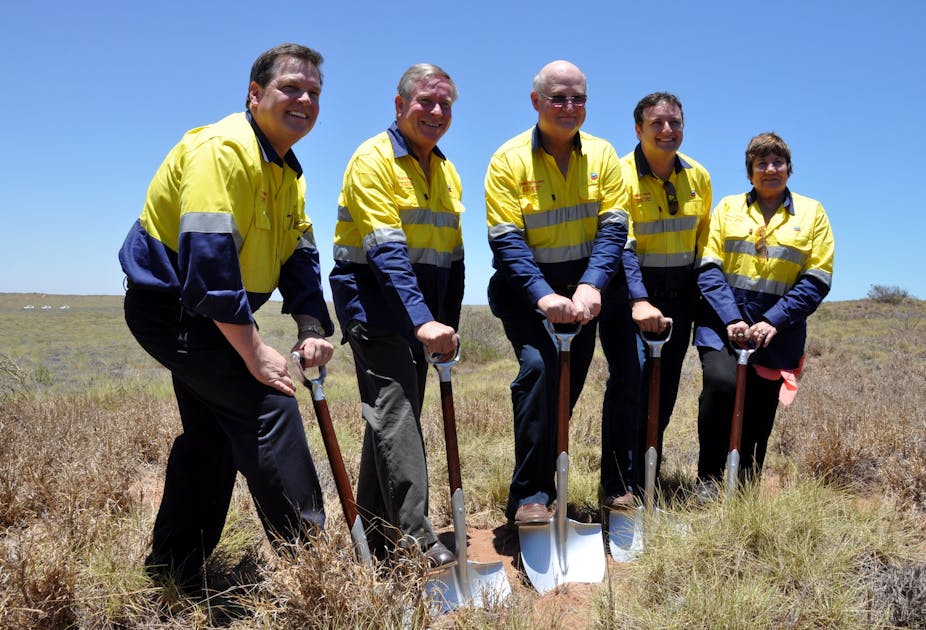Last week’s change in the Western Australian ALP leadership ended the three-year tenure of the ousted Eric Ripper – quite a good innings for a modern opposition leader, even if he wasn’t granted the opportunity to contest an election.
But there was always a sense that Ripper’s leadership was a stop-gap measure - arrived at by a party left rudderless by a surprise election defeat in September 2008 - and that it would look to a more telegenic alternative when the election came into view.
With more than a year to go, the catalyst arrived last week. In characteristic Labor style, a powerful union bloc informed Ripper he no longer had its support.
Alternative contenders having promptly ruled themselves out, support quickly coalesced around Mark McGowan, the 44-year-old member for the outer southern suburbs seat of Rockingham. McGowan had rapidly climbed the ministerial ladder during the Gallop-Carpenter government’s second and final term.
The change has provided a rare occasion for political observers to review Labor’s stocks in the west, which appear to be at an all-time low at both state and federal level.
Tough territory
There are a number of factors relating to demography and the economy that make WA intrinsically rough terrain for Labor.
The state is not notable for its ethnic diversity. According to 2006 census figures, it has twice as many people born in England and South Africa per head of population as the national rate, and barely a third as many Arabic speakers. The absence of large urban enclaves of non-Anglo immigrants means Labor is not furnished with the middle suburban belts of “unloseable” seats familiar from the political landscape in Melbourne and Sydney (at least until the last New South Wales election).
The WA economy is also characterised by the weakness of its manufacturing base. This further deprives Labor of the ranks of unionised, blue-collar workers who have provided support in the working class suburbs and industrial towns of the east.
Boom spells bust for Labor
Labor was nonetheless historically competitive, if not dominant, in WA for as long as the state was an economic laggard. But the onset of the permanent resources boom has helped generate the highest incomes in the country and correspondingly more-conservative voting patterns.
The boom has also created a strong association in the public mind between the state’s interests and those of a mining industry which is often hostile to Labor. The well understood role of China in powering the boom has left voters reluctant to extend the government credit for the strength of the economy.
The conviction that WA is propping up the rest of the nation, together with the low and declining share of GST revenue it receives, has activated a deep-rooted scepticism towards the federal project. This was most famously expressed when a proposal to secede attracted the support of two-thirds of the voters at a referendum in April 1933.
Labor is thus burdened by its traditional identification as the party of centralisation and hostility to states’ rights. Such sentiments helped fuel savage electoral backlashes against Gough Whitlam in the mid-1970s, which were echoed in the 2010 election result as well as more recent opinion polling.
The way ahead
It’s notable that Labor has tended to perform better at state than federal elections, despite the damage the state party suffered from the WA Inc debacle and the imprisonment of former Premier Brian Burke.
At the 11 state elections held since Charles Court’s Coalition government came to power in 1974, Labor polled an average of 43.2% of the statewide primary vote. This was against a combined 46.0% for the Liberal Party and the shifting permutations of National and Country parties – enough for it to alternate in power with the Coalition on roughly equal terms.
By contrast, Labor’s average vote at the 14 federal elections held over the same period has been just 39.2%, compared with the Coalition’s 47.8%. The drift has become especially pronounced since the beginning of the last decade, in which time the Coalition has achieved the remarkable feat of winning seats from Labor at four consecutive elections.
This offers Labor a perverse consolation at the next federal poll. Opinion polls may not offer much encouragement at present, but it would not require a strong performance in absolute terms for the party to recover seats it should never have lost last time, potentially compensating for losses in the other states.
But there is no such consolation for Mark McGowan, whose brief is to play to win in the face of formidable obstacles – history, demography, the economy and the electoral cycle.

